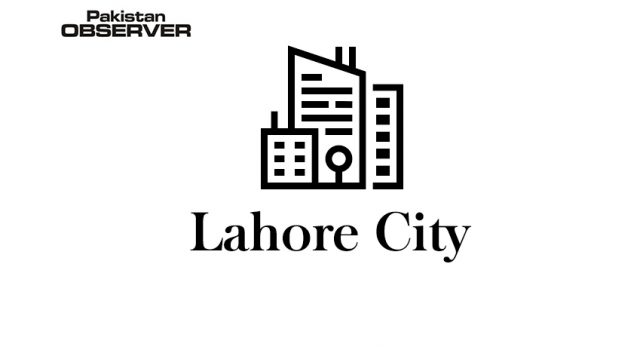From Little Acorns…….
Even the smallest contribution can make a huge difference in someone else’s life ….grow mighty oaks. A cliché, perhaps, and we have become largely inured to hearing these.
However, there is little doubt that this is exemplified, in spades, by the tremendous work so many charitable institutions do, in diverse fields, in our country.
Famously, Pakistanis are amongst the most generous people in the world, with a charity to GDP ratio comparable to that of countries with much higher per capita incomes, such as the UK and Canada.
This deep-seated urge to donate for humanitarian causes, in health, education, women’s rights, provision of meals and clean drinking water, amongst others, often encouraged by religion, is widespread in our country, crossing all divides.
Karachi is not only the largest city in Pakistan but, by one estimate, the seventh-largest city in the world [Demographia World Urban Areas: 11th Annual Edition: 2015.01].
It is a big city with an even bigger heart, and has a strong tradition of philanthropy, having always supported causes all across the country.
Wherever governments in Pakistan have been unable to provide for the populace, the private – and especially the philanthropic – sector has stepped forward to fill the gap.
Nowhere is this more true than in healthcare in Pakistan, and Karachi is replete with examples of this, including The Edhi Foundation and the Sind Institute of Urology and Transplantation, to name but a few.
In Lahore, and subsequently in Peshawar, the Shaukat Khanum Memorial Cancer Hospital and Research Centre, built and funded by charitable donations from all across the country, has carried the torch for cancer diagnosis and treatment.
Over the last 27 years, in Lahore, and the last six years in Peshawar, these hospitals have seen hundreds of thousands of patients with cancer, and treated over 75% of cancer patients completely free.
Cancer diagnosis and treatment is complex and multi-faceted, requiring a multi-disciplinary approach.
Treatment is often prolonged and requires expensive drugs, even more expensive equipment and highly-trained staff.
Our hospitals are tertiary-care cancer facilities, with all possible services needed for diagnosis and treatment of cancer, as well as for end-of-life or palliative care, available under one roof.
At SKMCH&RC, we have shown that clinical excellence for all is achievable in Pakistan, and we continue to provide not only the highest possible quality of both curative and palliative therapy for cancer, but also to conduct research into the causes and treatment of cancer.
Our commitment to clinical excellence has been recognised by the award of the Gold Seal of Approval® to SKMCH&RC in Lahore and in Peshawar, by the Joint Commission International.
By demonstrating continuous compliance with the internationally-recognised standards of the JCI, we are proud to be the only charitable hospitals in Pakistan to have earned this prestigious award.
Last year, the International Agency for Research on Cancer (IARC) estimated that there are over 178,000 new cancer cases in Pakistan each year.
A cancer diagnosis affects the entire family, and often causes major disruption in the life not only of the patient, but also of family members, who may have to give up jobs, or to move house, to help care for a loved one.
The majority of people in our country find the costs associated with cancer treatment unaffordable.
A desire to bring cancer care closer to the patient was the driving force behind the construction of our second hospital, in Peshawar, in 2015, given that up to 30% of the patients we were seeing in Lahore were from KpK and Afghanistan.
While a number of facilities in Karachi treat cancer, often to a very high standard, this huge city lacks a state-of-the-art tertiary care cancer centre.
It is to bridge this gap, and so as to be able to provide free and high-quality cancer care to as many people as possible, that we have undertaken the gargantuan task of constructing our third, and Pakistan’s biggest, cancer hospital, in Karachi.
At twice the size of our hospital in Lahore, this hospital will serve not only the city of Karachi, but also patients from elsewhere in Sind, as well as from Southern Baluchistan.
Construction work at the site, in DHA City, is well underway, and the Shaukat Khanum Hospital in Karachi is planned to open in late-2023.
The hospital will be equipped with the latest in technology for both diagnosis and treatment, and will be staffed by highly-qualified professionals.
It will continue the tradition of our hospitals in Lahore and in Peshawar by providing free treatment to the underprivileged.
The total cost of construction and commissioning is expected to be Rs16.4 billion, spread over three years, and this is, of course, in addition to the cost of running the two existing hospitals.
While this is an ambitious target, we have complete faith in the generosity of the Pakistani people, whose unstinting support has meant that each year we have collected more in Zakat and in donations than the previous year, and that as a result, each year, we have provided free cancer treatment to a greater number of deserving patients than the year before.
We have no doubt that if everyone in Pakistan, with its population of 220 million, gives a little, we can build SKMCH&RC in Karachi to ease the sufferings of cancer patients there, just as we have been able to achieve in Lahore and in Peshawar.
The writer is the Chief Medical Officer and Acting CEO of Shaukat Khanum Memorial Cancer Hospital and Research Centres, Lahore & Peshawar










